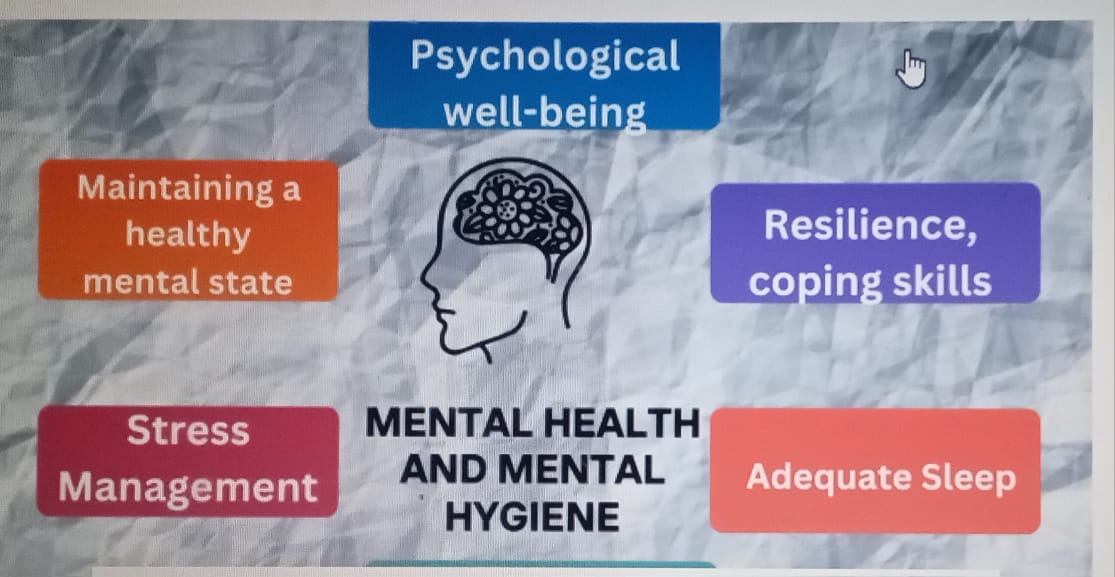We all know the importance of physical hygiene: showering, brushing our teeth, and eating healthy. But what about our emotional well-being? Emotional hygiene, the proactive practice of maintaining our mental and emotional health, is just as crucial for a fulfilling and balanced life. Neglecting it can lead to stress, anxiety, and a host of other mental health challenges.
The good news is that practicing emotional hygiene doesn't require hours of therapy. It's about incorporating simple, mindful habits into your daily routine. Here are three effective ways to boost your emotional hygiene and cultivate a more resilient and positive outlook:
1. Acknowledge and Process Negative Emotions:
We often try to suppress or ignore unpleasant feelings like sadness, anger, or frustration. However, burying these emotions can lead to them festering and intensifying over time. Instead, acknowledging your feelings is the first step towards processing them healthily.
- Practice Mindfulness: Take a few moments each day to simply notice and observe your emotions without judgment. Ask yourself, "What am I feeling right now?" and allow yourself to experience it without trying to change it.
- Journaling: Writing down your thoughts and feelings can be a powerful way to untangle complex emotions and gain clarity. Even just writing for 10-15 minutes a day can make a significant difference.
Over the years it has not always been easy to find some one to share my deepest thoughts and concerns with and Journaling really served as an outlet for me.
- Talk to Someone You Trust: Sharing your feelings with a friend, family member, or therapist can provide valuable support and perspective. Talking it out can often help you process your emotions and find solutions.
By acknowledging and processing negative emotions, you prevent them from building up and overwhelming you. Instead, you learn to navigate them with greater awareness and resilience.
2. Challenge Negative Self-Talk:

We are often our own worst critics. Negative self-talk can erode our self-esteem, create anxiety, and sabotage our goals. Learning to identify and challenge these negative thoughts is a cornerstone of emotional hygiene.
- Identify Automatic Negative Thoughts (ANTs): Pay attention to the thoughts that pop into your head when you're feeling down or stressed. Are they critical, self-deprecating, or pessimistic?
- Challenge the Evidence: Ask yourself if these thoughts are based on facts or just opinions. Is there evidence to support them? Is there evidence that contradicts them?
- Reframe Negative Thoughts: Replace negative thoughts with more realistic and positive ones. For example, instead of thinking "I'm going to fail," try "I'm going to do my best, and that's all I can ask for."
- Practice Self-Compassion: Treat yourself with the same kindness and understanding you would offer a friend. Acknowledge that everyone makes mistakes and that it's okay to not be perfect.
By challenging negative self-talk, you can break free from limiting beliefs and cultivate a more positive and empowering inner dialogue.
I learned that not being too hard on myself but focusing on the lesson from a mistake or bad decision or poor judgement and focusing on the way forward became important to rid me of guilt. when operating from a place of guilt you tend to not step up to be the best you can be and you want to punish yourself thus depriving yourself and ultimately those who depend on you of some benefit that could have been achieved.
3. Cultivate Meaningful Connections and Activities:

Humans are social creatures, and strong social connections are essential for our emotional well-being. Engaging in activities that bring us joy and purpose also contributes to a sense of fulfillment and resilience.
- Nurture Relationships: Make time for the people who matter most to you. Schedule regular catch-ups, offer support, and practice active listening.
- Engage in Hobbies and Interests: Pursue activities that you enjoy and that give you a sense of flow and accomplishment. This could be anything from painting and playing music to hiking and gardening.
- Practice Gratitude: Regularly reflecting on the things you're grateful for can boost your mood and increase your overall sense of well-being. Keep a gratitude journal or simply take a few moments each day to appreciate the good things in your life.
- Volunteer and Help Others: Helping others can be a powerful way to boost your own emotional well-being. It can provide a sense of purpose and connection and remind you of the good in the world.
By cultivating meaningful connections and activities, you create a strong foundation for emotional resilience and cultivate a more fulfilling and meaningful life.

Practicing emotional hygiene is an ongoing process, not a one-time fix. By incorporating these three simple steps into your daily routine, you can proactively nurture your mental and emotional well-being and build a more resilient and happy life. Just like brushing your teeth, consistent effort yields significant dividends in the long run. So, start today and prioritize your emotional health – you deserve it.
This is Lori Stewart the Inspirator till next time "Be Bold, Make your Impact and Enjoy Life!"


